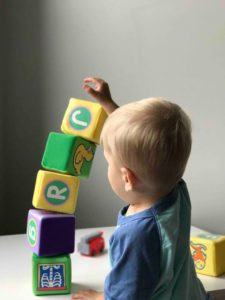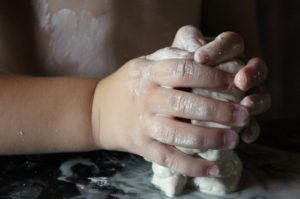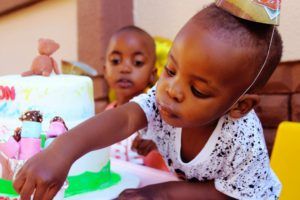
Development for people begins when they are first born. According to Jean Piaget’s theory, children from birth to age two are in the sensorimotor stage; which means, they use their senses to learn about the world around them. Children from ages two to seven are in the preoperational stage; which means, they are now developing their imagination and memory. On this stage, many learning games for preschoolers help them both satisfy their curiosity and develop their imagination, one of the most important mental processes.
From ages seven to eleven children are in the concrete operational stage, where children start to be less egocentric and are able to understand that not everyone shares the same ideas, beliefs, and thoughts as them; they also become more aware of the world around them.
The formal operation stage is when children are eleven and older, children become even more aware of the world around them and they are able to start solving problems with logical reason. Each one of these developments allows us to finely tune our gross and fine motor skills and our cognitive abilities.
Our motor skills allow us to do our everyday tasks (fine motor- holding an object, gross motor- rolling over); while our cognitive abilities are our mental abilities (reasoning, memory and learning abilities). One way of helping our children develop their abilities is by using learning games.
Cognitive Play
Cognitive abilities are an essential part of our everyday lives. Our cognitive abilities are our mental abilities; they allow us to think, understand, and to learn. We have our memory, attention, perception, language skills, auditory processing, visual processing, motor skills and logic/reasoning areas in our brains and all these parts work together to process information. The information these parts process, allow us to do everything; from the most basic task to the most complex. Parents can strengthen their child’s cognitive abilities in many different ways, and one of those ways is by playing games.

There are many different games that children can play that will strengthen their cognitive abilities and games that they play that are useful to strengthen other parts of body/mind, will also help to strengthen their cognitive ability. Some learning games for preschoolers, that focus on the cognitive play are: puzzles, practice games (like repeating the alphabet, counting, practicing colors/shapes, etc.), singing songs, questioning games, etc.
Critical Thinking Play
Critical thinking is a key aspect of everyday life. Critical thinking teaches us how to independently think (without being influenced by others), how to make good decisions and the understanding of the consequences of our decisions, how to analyze information and make a conclusion out of the information we are given (problem solve), and to be open-minded to new things.
Parents are able to use children’s eagerness to know more and their inquisitiveness to lay the groundwork to teach critical thinking. There are several ways to teach children how to use critical thinking. You can teach your children to use a who, what, when and where approach to things they have read or heard. Parents can help their children to engage in conversations that allow them to use problem-solving techniques, then asking them how they came to that conclusion.

After asking how they came to that conclusion, you can suggest another solution to how they can come up with the same conclusion or suggest another answer and ask how they could come up with that solution. Some learning games for preschoolers, to use their critical thinking skills are: games that can give them multiple ways to get the same ending, games that allow children to challenge their mindset (such as having them read a book and ask them to predict the plot or character’s motivation for doing what they are doing or role-playing games), problem solving games, memory games, etc.
Motor Skills
Motor skills are another important part of everyday life. Motor skills refer to the development of our bones and muscles, and how we are able to move around and how we manipulate the things around us. Our motor skills are broken up into two categories: our gross motors skills (these are the larger muscles – usually our core stabilizing ones – they help with our whole body’s movement) and our fine motor (dexterity) skills (these are the smaller muscles – usually the ones in our hands, feet, wrists, fingers, and toes – they help us perform our tasks more efficiently); both of these skills make up our coordination.
We can help children develop their motor skills in many different ways and one way to do this is by playing games with them. Some learning games for preschoolers particularly, to develop their motor skills are: games that you have to use your body to move around, not to hit something (think limbo type games), games where children have to manipulate things (open/close doors), building games, hand-eye coordination games, balancing games, etc.
Pretend Play (Creativity/Imagination)
Pretend play is important for children because children are having fun; along with having some educational value with it. Pretend play allows children to learn more about themselves and the world around them. They can find out what they like, what they don’t like, things that interest them, and what abilities they have, all in a safe environment. Children are also learning new ways to express themselves, especially in social settings.
They also learn how to negotiate with others, how to express themselves and listen to others, how to coexist with others, etc. Children are thus able to bolster their social and emotional abilities. They learn how to collaborate and cooperate with others. Also, children learn how to identify and manage their feelings. Some learning games for preschoolers, to use to pretend play are: dress-up, building blocks, playing school, restaurant, doctor, etc.
A Website for Children
One great website that carries many of these games is fatbraintoys.com. Fat Brain Toys is a family owned and operated distribution and toy development business, that was started in 2002 by Mark and Karen Carson. The husband and wife team started their business in their basement, after their son Adam received Geomags for Christmas and they had a hard time finding more of them. The process of searching everywhere for these toys made Mark and Karen wonder, what other stimulating toys/games people were missing out on because they were not distributed through major chains.
Eventually, they expanded, and included other specialty toys, to their garage and now have a 40,000 square foot warehouse. Fatbraintoys offer toys that stimulate people’s minds, that come from independent shops and sellers.
They want toys that inspire and help children to grow, not only mentally but physically and emotionally as well. The toys they offer help children to build their cognitive abilities, develop their critical thinking and motor skills and creativity. These games allow children to build upon these areas of development, which will help them in the long run.
Parents/teachers are able to teach children and help them develop these skills without the child even knowing they are learning, which sometimes is the best way.